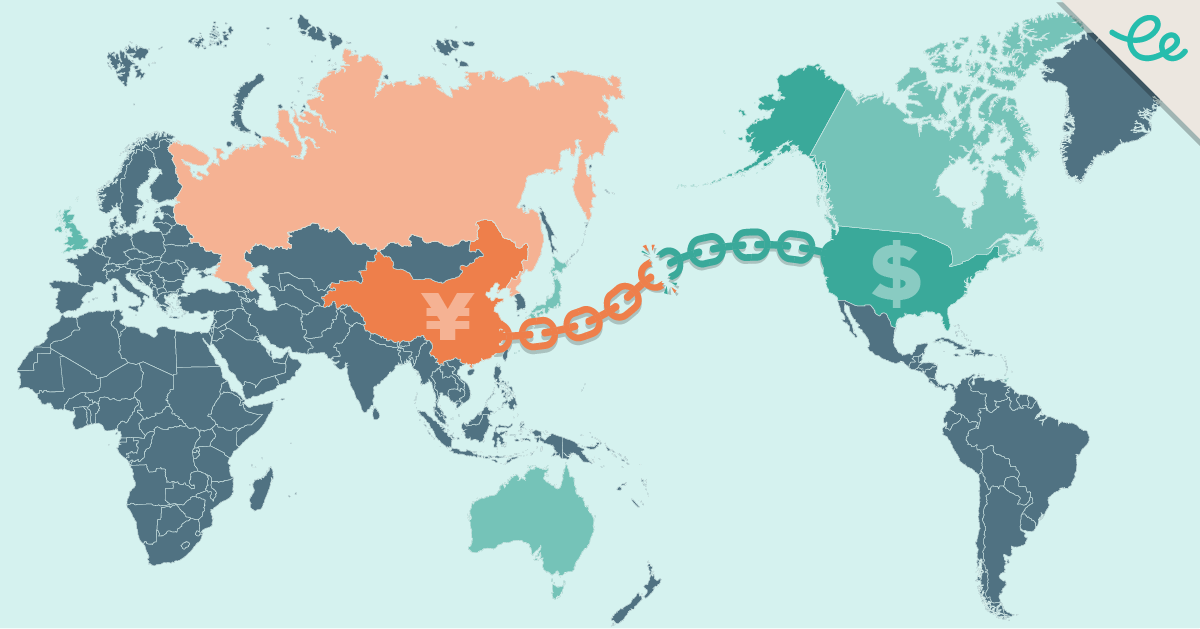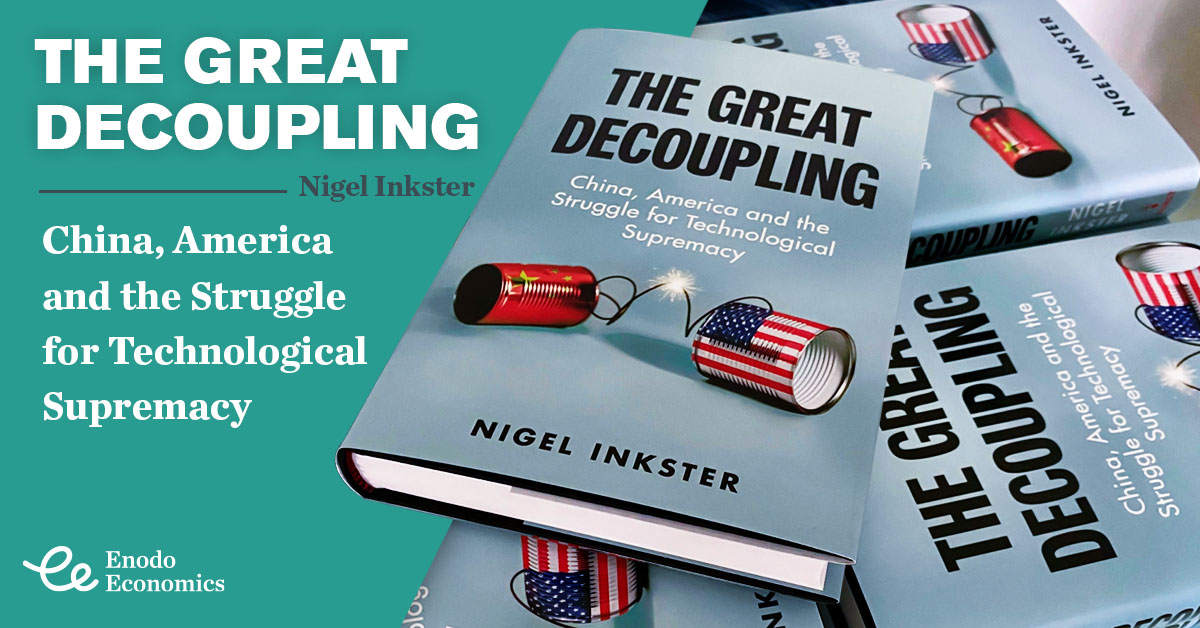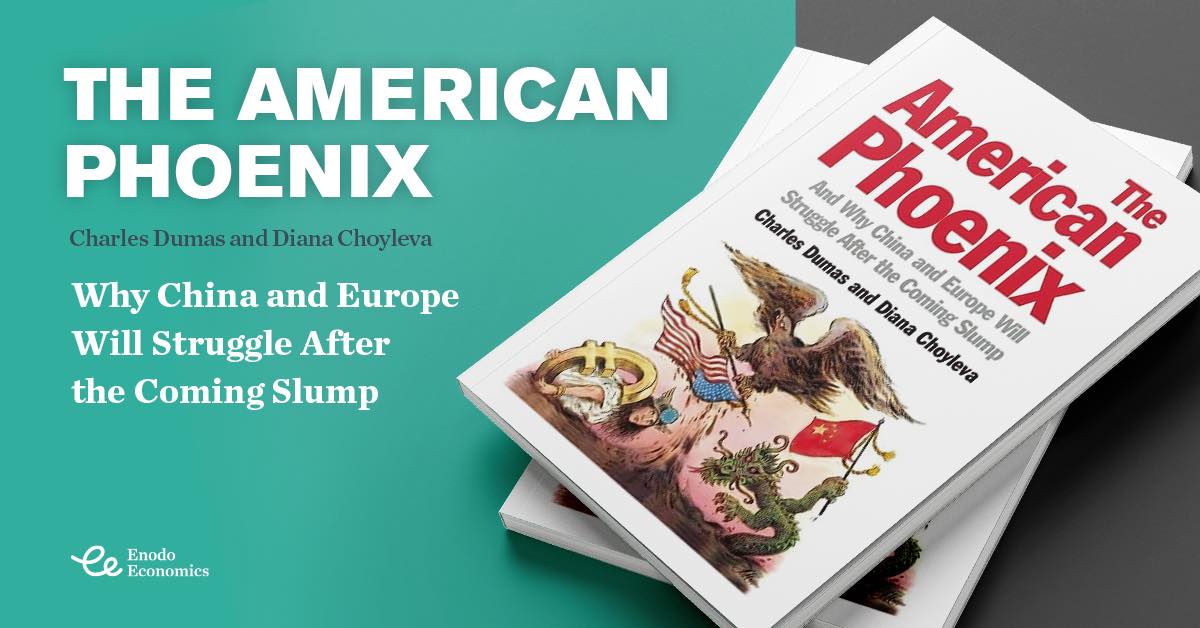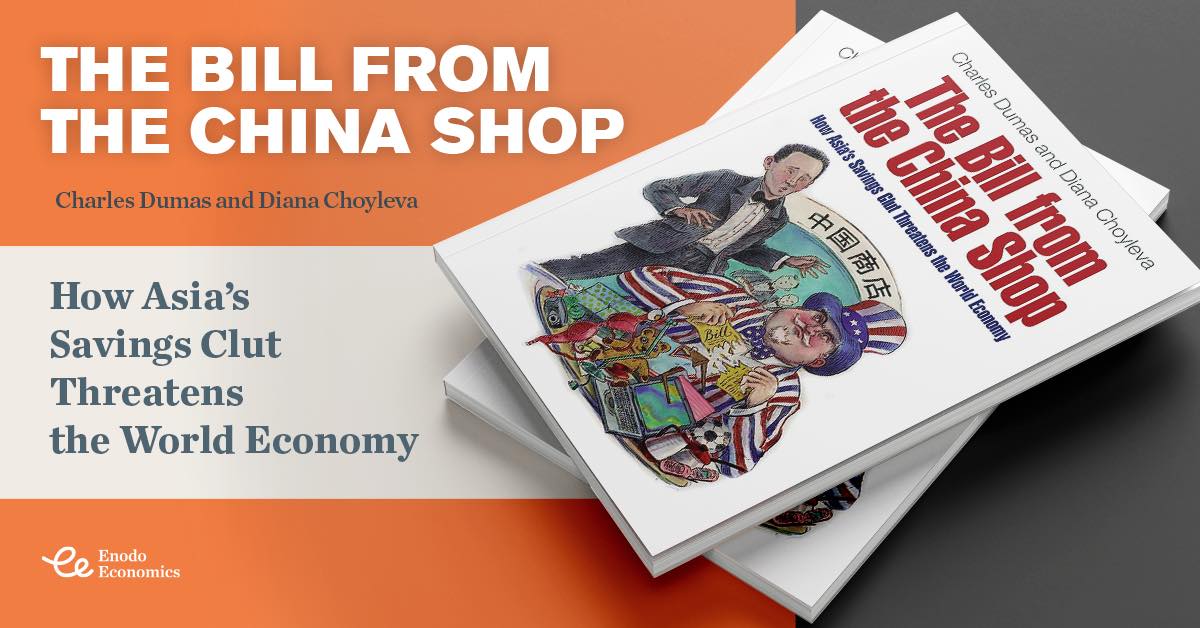Financial Investigator Seminar Special Event Enodo Economics Chief Economist Diana Choyleva took part in Financial Investigator Interactive Seminar: What To Own in a Low-yield World. Escalating Disruption, what’s the Macro Economic Outlook for 2022 and beyond? What’s the impact of China on the rest of the world? What to own, and not to own, in a low-yield world? What (alternative) fixed income sub asset classes are the most attractive? Highlights from Diana Choyleva’s participation in the seminar
China’s Quest for Financial Self-Reliance: Project announcement
How Beijing Plans to Decouple from the Dollar-Based Global Trading and Financial System Special Project Enodo Economics and the Wilson Center have joined forces working on a year-long project to explore how China plans to challenge the dollar-led global financial order, whether its strategy can feasibly allow its decoupling from the dollar and assess its chances of creating a parallel system based on the yuan. The team is led by Diana Choyleva and Dinny McMahon and overseen by our Senior Advisory Board. We will produce an in-depth report in August 2022, intended to inform US policymakers on the impact this is likely to have on the US and suggest possible responses to safeguard America’s financial system, in line with its expressed national security goals. We start by developing a detailed understanding of China’s current efforts to promote the international use of the yuan, getting beyond the headlines to understand the…
The Great Decoupling: China, America and the Struggle for Technological Supremacy
Will China’s drive to achieve global technological dominance unravel the world order? Book Get a copy of the revised edition (May 2023) of The Great Decoupling by Nigel Inkster here. For much of recorded history, China was a leading science and technology power. But just as the West rose, China turned in on itself and missed the Industrial Revolution. The result was the ‘Hundred Years of Humiliation’, and a long struggle for a modern, yet distinctly Chinese, civilisational identity. Today, technological innovation has returned to the core of national pride and ambition. Since the 1980s, reforms have transformed China into the world’s second largest economy and a major global power. Cyber space and other advanced technologies have become a battleground for international dominance; but today’s world relies on global supply chains and interstate collaboration – at least for now. Growing tension between the USA and China could result in the…
Is the World Really Flat? Protectionism and Populism Reveal Craters
Bloomberg New Economy Forum 2019 Special Event Enodo Economics Chief Economist Diana Choyleva took part in Bloomberg New Economy Forum Session: Is the World Really Flat? Description Until a few years ago, globalization seemed to be an unstoppable force. No country would be left behind in a borderless global economy connected by fibre optic cables. Today, this dream of common prosperity has been shattered by the rise of populism and protectionism. The world is no longer flat. From the U.S. to Italy, a tide of resentment at globalization has redrawn the political map. Support for free trade and open borders has fractured, and with it support for mainstream politicians. Confidence in the traditional tools for maintaining growth is faltering. Protectionism threatens to hammer trade flows and slow the technology catch-up of developing economies. This year, trade growth will lag the overall expansion of the global economy. Populist leaders pushing inward-looking…
China’s Future Role in the Global Financial System
China Will Keep Opening Up, Promises Mr Renminbi Enodo Special Event Here is a sneak peak of the event. Zhou Xiaochuan, former Governor of the People’s Bank of China, and Mervyn King, former head of the Bank of England, discuss financial liberalisation in China, what’s wrong with the global financial system and the need for global rebalancing. Introduced by Enodo’s Diana Choyleva and moderated by the FT’s Martin Wolf. Crises that shook the world have held back China’s financial liberalisation and exchange-rate reform, but Beijing remains committed to further reform and opening up, says Zhou Xiaochuan, the former governor of the People’s Bank of China. The US-China trade war may hamper progress, since market access to China’s financial sector is a bargaining chip in talks to resolve the dispute, according to Zhou. Yet despite these “negotiation games… I think we have quite good determination to have much braver financial…
The Big Debate: Has Globalization Gone Too Far?
Bloomberg New Economy Forum 2018 Special Event Description Diana Choyleva, chief economist at Enodo Economics, and Stephen King, senior economic advisor at HSBC, debate Parag Khanna, managing partner at FutureMap, and Nandan Nilekani, co-founder and chairman at Infosys Ltd., over the pros and cons of globalization. Bloomberg Economics’ Stephanie Flanders moderates at the Bloomberg New Economy Forum in Singapore on Nov. 6, 2018. Debate You can watch a recording of the debate here. Diana Choyleva’s speech ”For me personally globalization has been a great thing. I was born in Bulgaria while it was still communist. And at school my teachers did their best to teach me not to think. Then the Berlin Wall fell, and my fortunes changed dramatically for the better. I went to the UK to study and work and had the opportunity to learn from some of the best minds in economics. People who most definitely made…
London and the South Regional Winner: Inspiring Leader 2017
Issued by Forward Ladies Women in Business National Awards Award Enodo Economics Chief Economist Diana Choyleva is the winner of Inspiring Leader 2017. The Inspiring Leader award recognises leaders in businesses of any size who have brought out the very best in their team and driven their business forward with exceptional results. They have typically 10 + years of leadership experience and are more than competent managers or business owners – they are women who have inspired other women and men, have an excellent track record of staff engagement and retention and are recognised as leaders within their particular sector. The Forward Ladies’ National Awards are judged by an independent judging panel, comprising professional men and women, successful entrepreneurs and business people.
The American Phoenix: And Why China and Europe Will Struggle After the Coming Slump
Book Get a copy of The American Phoenix, by Diana Choyleva and Charles Dumas HERE. 2012 will bring another global economic crisis. It could have been avoided if America and other deficit countries had embarked on currency devaluation and tighter domestic policy to sustain recovery and growth, boost exports and savings, while cutting excessive debts built up in the pre-crisis ‘gilded age’. But they didn’t. Instead, they continued to run large government deficits, effectively transferring debt from private to public hands, rather than reducing it through rising national savings rates.Savings-rich countries, notably China, have not helped. To get the global economy in better balance they needed to reduce exports by revaluing their currencies and encouraging domestic demand. Instead, the second, third and fourth largest economies in the world have continued to increase their net exports, thwarting recovery in the United States, Britain, and southern Europe. This economic imbalance, say Dumas and Choyleva,…
The Bill From The China Shop: How Asia’s Savings Glut Threatens the World Economy
Book Get a copy of The Bill From The China Shop, by Diana Choyleva and Charles Dumas HERE. Alan Greenspan’s tenure at the US Federal Reserve coincided with a period of unparalleled global growth, stability and prosperity. But the world economy has been warped since the 1997 Asian crisis by excessive saving in China and developing Asia, as well as in Japan and north-central Europe. Unsophisticated economic policies and primitive financial systems, notably in China but also in other parts of Asia, have resulted in the global economy now depending on unprecedented current account deficits and the willingness of America, Britain, Australia and increasingly Europe, to import goods and capital. This has led to a huge build-up of domestic debt The United States, for example, spends more than 106% of its annual GDP. Household debt is soaring relative to income. Easy money policies inevitably lead to over-stimulation and the risk…









